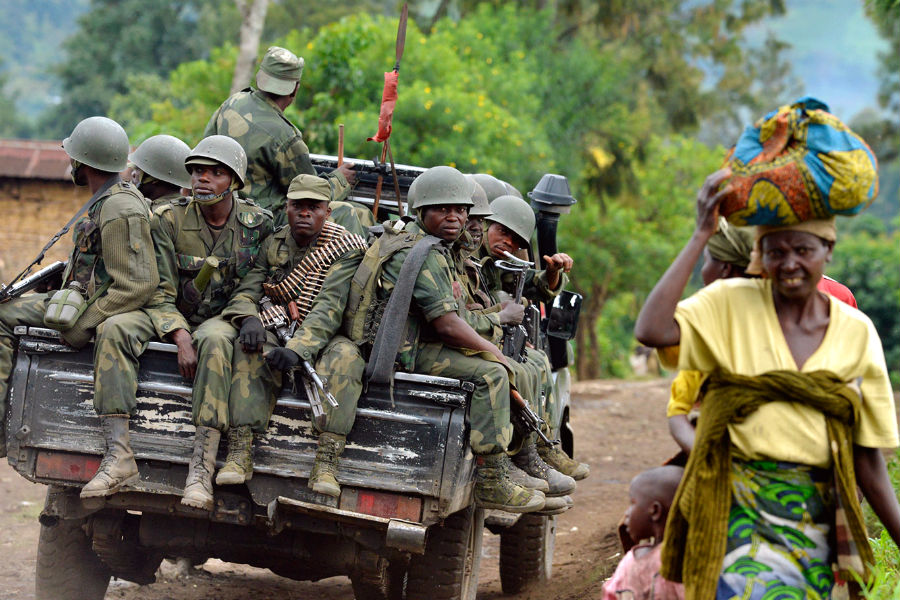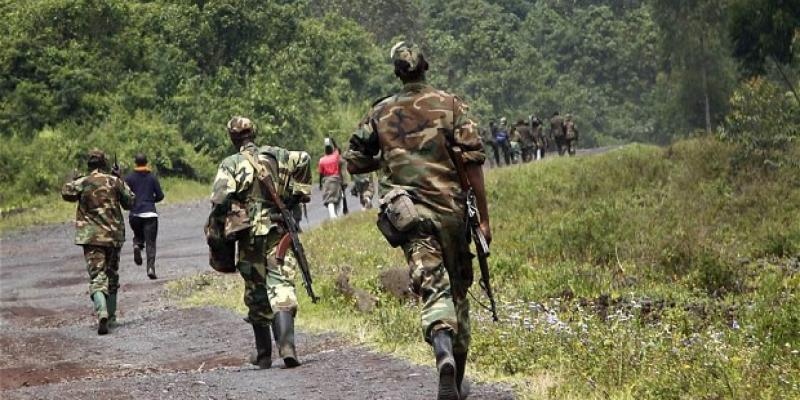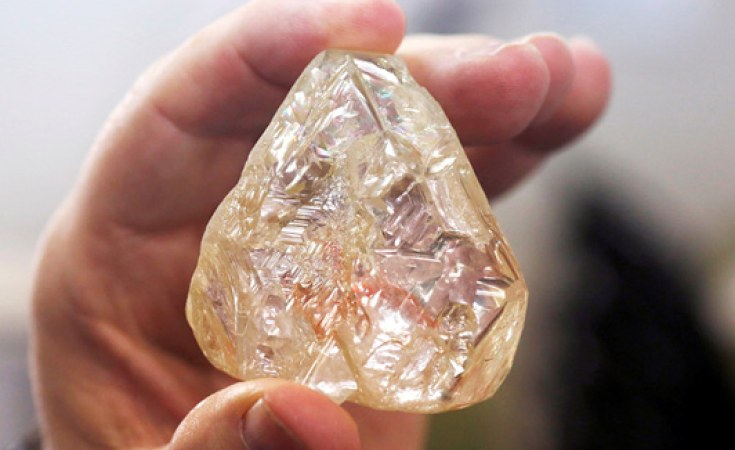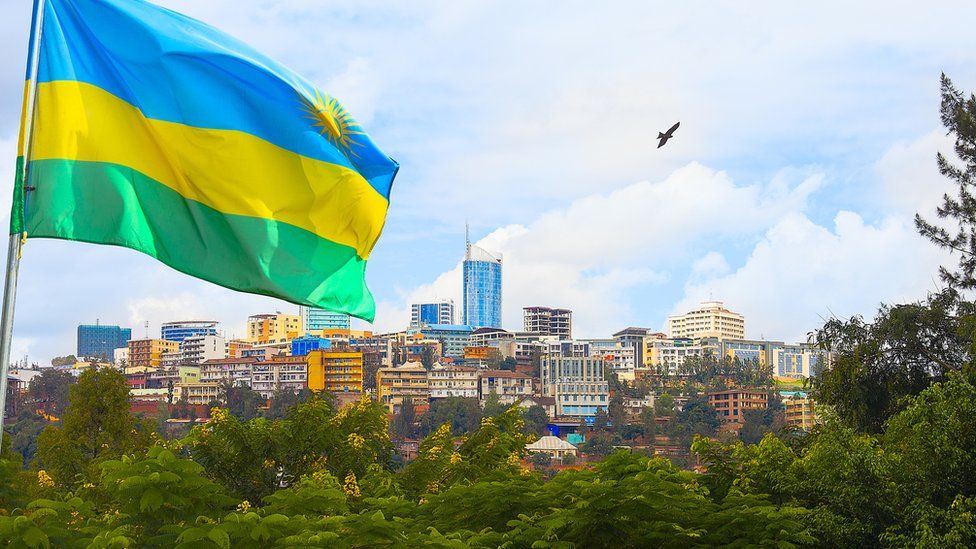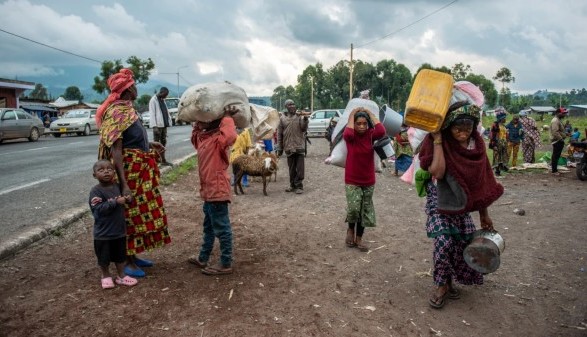Regional
Biden should ask Tshisekedi about ties with Rwandan genocidaires
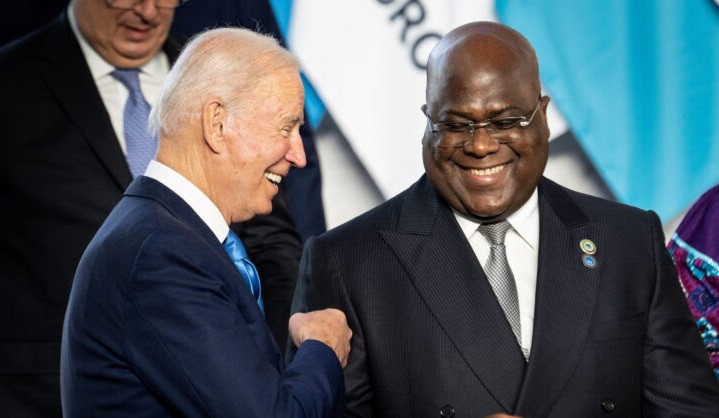
US President Joe Biden talks with DRC's President Felix Tshisekedi in Rome, Italy October 30, 2021. Erin Schaff/Pool via REUTERS
In
his piece, "How Biden Can Transform Africa Posturing into Progress,"
published before over 40 African leaders converged on Washington, DC, for
the U.S-Africa Leaders’ Summit, on December 13, Michael Rubin, a senior
fellow at the American Enterprise Institute, noted that: "It is time
Washington learn from its mistakes, encourage African success stories, and work
through African partners to reverse the contagion of instability and extremism
making a comeback on the continent.
"The
way forward is not through conferences or dumping money and responsibility upon
the United Nations. Rather, it is through careful diplomacy not beholden to
disaffected exiles and through military partnerships. In each case, Rwanda is
key."
US
President Joe Biden is hosting the second US-Africa Leaders Summit scheduled
for December 13-15 in Washington. Though recent reports indicate that Biden is
not expected to have a one-on-one meeting with any of the African leaders
attending the three-day summit, other reports claim that his
administration is planning on bringing together Rwandan President Paul Kagame
and his Democratic Republic of Congo (DRC) counterpart, Felix Tshisekedi, for a
possible sit down during the Summit, which is under way in Washington DC.
Relations
between Rwanda and DRC soured in mid 2022 following the outbreak of armed
conflict between the Congolese army, FARDC, and the M23 rebel group in eastern
DRC near the border with Uganda. In October, Kinshasa expelled Rwanda's
ambassador, Vincent Karega, accusing Kigali of supporting the M23 rebels.
Rwanda has repeatedly dismissed the claims and, instead, condemned the
collaboration between the Congolese army and the FDLR, a terrorist group
responsible for the 1994 Genocide against the Tutsi in Rwanda.
One
of Washington’s mistakes in the Rwanda-DRC conflict has been its very wrong and
misguided approach which continues to exacerbate the problem. On December 5, a
day after US Secretary of State Antony Blinken spoke with President Kagame
about the importance of peace and stability in the east of the Democratic
Republic of Congo, the State Department released a statement in which Blinken
“made clear that any external support to non-state armed groups in the DRC must
end, including Rwanda’s assistance to M23.”
The
Biden administration, misguided by Kinshasa’s lies and, most likely, its own
interests, continues evading addressing the root causes of insecurity in DRC.
Kinshasa
has a bargaining chip.
In
particular, a rivalry between China and the United States could have
far-reaching implications for the region. The DRC is a very rich country, considering its vast natural resources
wealth. Among others, with more than two-thirds of the world’s cobalt
production coming from DRC, the country is once again taking center stage as
new automobiles rely on a host of minerals and metals often not abundant in the
United States.
But
the threat of genocide ideology, in the region, is real, and it shouldn’t be
ignored. The UN Special Adviser on the Prevention of Genocide, Alice
Wairimu Nderitu, earlier shed some light on the genesis of violence in the region.
She pointed out that the current violence mainly stems from the refugee crisis
that resulted as many individuals involved in the 1994 Genocide against the
Tutsi in Rwanda fled to DRC, forming armed groups such as the FDLR which is
still wreaking havoc in the region.
After
killing more than one million Tutsi in Rwanda, the then genocidal government’s
army, or ex-FAR, and Interahamwe militia, poured into eastern DRC to regroup,
re-arm and prepare to go back to Rwanda, and continue with their genocidal agenda.
The US, and the rest of the international community, know this.
As
Rwanda’s top diplomat, Dr Vincent Biruta, noted, a lasting solution requires
the responsibility to be placed where it belongs: the dysfunction of the DRC
government and its institutions, and the support to FDLR.
“External
interference and dictates in regional and continental efforts that serve to
shield DRC from accountability and emboldens them to be unresponsive to
commitments made through ongoing processes,” Rwanda’s Minister of Foreign
Affairs said.
“M23
should not be equated to Rwanda. It is not Rwanda’s problem to solve. The
security concerns of Rwanda need to be addressed, and where others may not feel
obliged to, Rwanda is and will continue to do so.”
Although
the White House has, reportedly, scheduled no bilateral meetings between Biden
and any African leader during the summit, during curated substantive and
special moments for interactions, the US President should engage Tshisekedi, through
careful diplomacy, and advise the latter to do the right thing.
Biden
should, without mincing words, ask Tshisekedi about his ties with Rwandan
genocidaires. It’s now an open secret that Kinshasa is collaborating with mass
murderers whose sole agenda is the extermination of the Tutsi, wherever they
are in the region – in DRC, Rwanda, and elsewhere.
Like
Human Rights Watch noted, on October 18, the Congolese government “should end
this support (to FDLR), which leads to military complicity in abuses, identify
officers responsible, and hold them accountable.”
Between
May and August 2022, HRW reported, the Congolese army with a coalition of
Congolese militia as well as the FDLR fought against M23 rebels in
North Kivu province. At times, it is noted, Congolese army officers provided
the armed groups with direct support.
“Congolese
army units are again resorting to the discredited and damaging practice of
using abusive armed groups as their proxies,” said Thomas Fessy, a senior researcher
at Human Rights Watch.
Among
others, Human Rights Watch received credible information that Congolese army
members from Tokolonga’s 3411th regiment provided more than a dozen boxes of
ammunition to FDLR fighters in Kazaroho, one of their strongholds in the
Virunga National Park, on July 21. Two months earlier, dozens of FDLR and
CMC/FDP fighters took part in a large counteroffensive with government soldiers
in the area around Rumangabo and Rugari.
One
FDLR fighter told Human Rights Watch that he witnessed four transfers of
ammunition. “It’s the government [troops] that would always provide us with
ammunition,” he said. “They also gave us uniforms and boots.”
Human
Rights Watch documented cases of abuses against civilians, including killings
by FDLR fighters in May and July and two cases of rape by Congolese soldiers in
July. On July 7, it is noted, FDLR fighters executed Kaseba Nyangezi, 25, who
was born in an ethnically mixed Hutu-Tutsi family. He and his family fled the
town of Bunagana, on the DRC-Uganda border, following its takeover by M23
rebels and sought refuge in Kabaya. A family member said that fighters from both
FDLR and Nyatura armed groups accused Nyangezi of collaborating with the M23
and harassed him.
Feeling
threatened, he fled to Goma, where fighters eventually picked him up. “They
took him away and sent him to the FDLR in Rugari,” the family member said.
“[FDLR fighters] killed him and we have yet to find his body.”
EU
sanctions
In
early December, Protogene Ruvugayimikore, a senior FDLR commander, was put on
the latest sanctions list of the European Union for committing atrocities in DRC.
The EU sanctions list, released on December 8, indicates that Ruvugayimikore leads
the Maccabé Group, formerly known as the Commando de recherche et
d'action en profondeur (CRAP) of FDLR-FOCA.
"The
FDLR-FOCA, including the Maccabé Group, contributes to the armed conflict,
instability and insecurity in the DRC, in particular through violence and
serious human rights abuses, including attacks on civilians, killings, violence
against children, rapes and other acts of sexual violence.”
Ruvugayimikore is involved in planning,
directing or committing acts that constitute serious human rights violations or
abuses in the DRC, it was noted.
"He
is also responsible for sustaining the armed conflict, instability and
insecurity in the DRC.”



